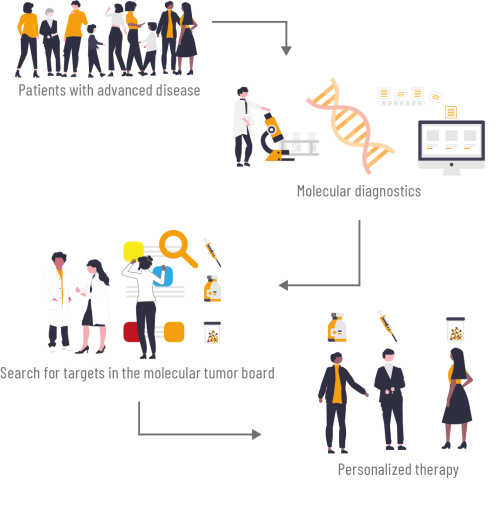

 New technologies, such as molecular analyses, modern imaging technologies and computational analyses allow for individual characterization and increasingly more tailored therapies.
New technologies, such as molecular analyses, modern imaging technologies and computational analyses allow for individual characterization and increasingly more tailored therapies.
Well-established medical guidelines exist for the majority of diseases. Still, there is a small proportion of patients for which the guideline treatments do not apply. In cases when the cancer progresses following the standard therapies or when the disease is rare, a more individualized approach is necessary. In inflammatory diseases finding the precise therapy early in the patient journey will reduce suffering and save money.
Personalized Medicine is the result of a paradigm shift currently taking place towards causal, knowledge-based medicine. Here, the molecular characteristics of both the disease and the patient are considered for precise and individual diagnosis and treatment. In particular, multifactorial processes such as tumor development, dementia, diabetes and cardiovascular diseases can be classified into specific subtypes (stratification) and thus be treated in a personalized and efficient manner. The goal is precise, individualized medicine in which every patient receives an optimal and individually tailored treatment strategy.
The application of Personalized Medicine is currently focused on oncology. In oncology, the correlations between individual characteristics (for example, genetic changes in the tumor) and the therapy options tailored to them have been researched most extensively. In addition, a large number of molecular drugs for cancer therapy and clinical studies are available. In everyday care at the ZPM, the interdisciplinary Molecular Tumor Boards serve as the central tool of Personalized Medicine, evaluating and finding therapy for oncological patients. For patients with inflammatory diseases we are establishing the Molecular Inflammation Boards.